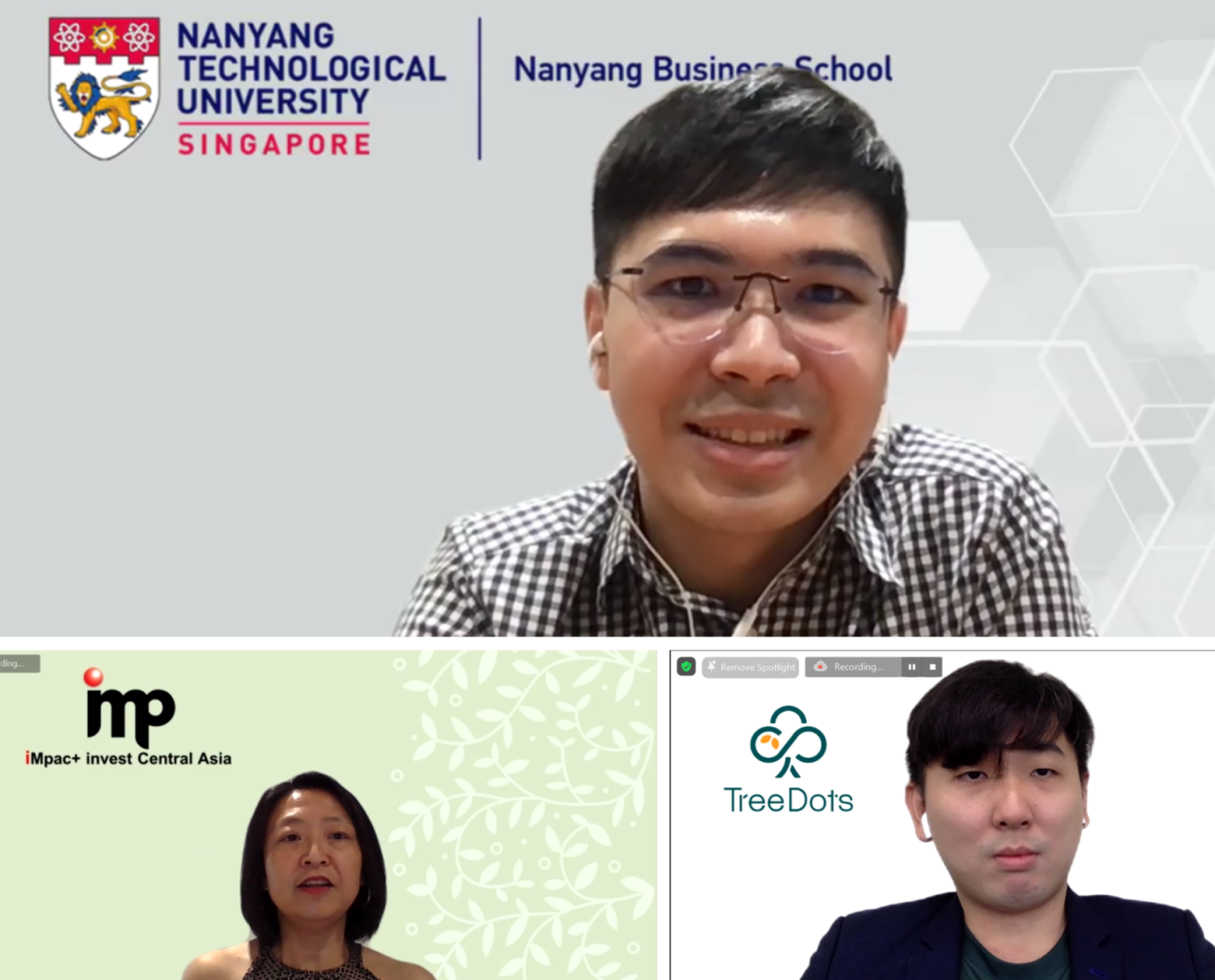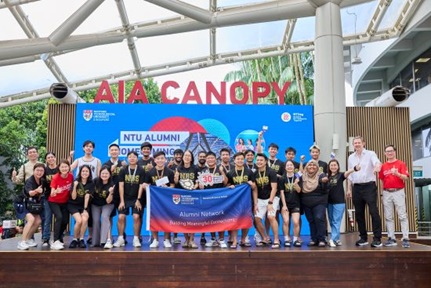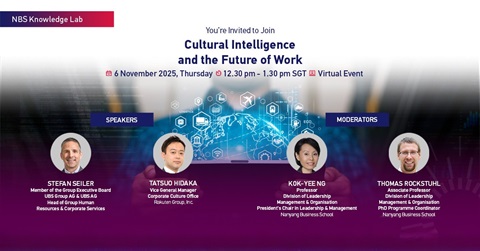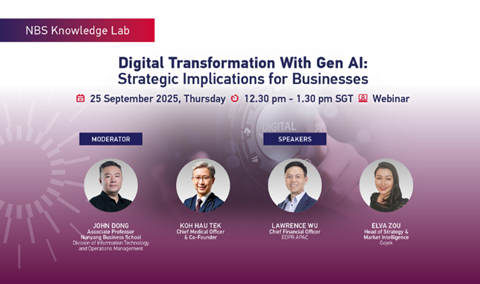Business for Good: Social Entrepreneurship
The latest instalment of the NBS Alumni Leaders Dialogue
In the latest instalment of the NBS Alumni Leaders Dialogue, which was held on 27 January 2021, Mr Lau Jiacai, Co-founder of TreeDots and Ms Renee How, Director of iMpac+ invest Central Asia joined moderator Mr Terence Fou, Vice President (MBA Social & Cultural Club) to share their experiences with social entrepreneurship and the challenges they faced in their respective projects.
Leaving her architectural career in 1999, Ms How found her passion for helping those in need while taking part in a community project in Kazakhstan. Since then, she has, among other things, been teaching local farmers alternative farming options to help them maximise their land. One of these options is aquaponics farming, which Ms How was introduced to while doing an MBA module in NTU. Some of the challenges she has had to face include the locals’ aptitude for learning new things, as well as the high start-up cost for local farmers interested in aquaponics.
To tackle this issue of high start-up cost, Ms How also developed a microfinancing project that offers loans to local farmers to help them start up their own aquaponics. The project aims to help small businesses grow, so that they can eventually create jobs for their own community. Pre-selected borrowers attend business training with Ms How, who also fills in any business roles that the borrowers do not have the resources to provide for themselves (e.g. designer, sales manager, etc.)
Having started her own business in January 2021, Ms How hopes to open inroads into and out of Central Asia. One of her next projects involves training marginalised individuals in Kazakhstan (e.g. orphans, autistic children) to run instant noodle bars, so as to provide opportunities for them to create a decent life for themselves. This manner of doing and showing is, to Ms How, the best way to get people more involved in corporate social responsibility (CSR).
Mr Lau, on the other hand, started off working as an auditor but left as he felt that he was not creating the impact he wanted. Consequently, he and his co-founder started TreeDots, which aims to reduce food wastage, specifically on a business level. Bulk imports make it impossible for businesses to cherry pick the specific product they want, thus resulting in high amount of wastage as businesses are unable to store the products for long. As such, TreeDots steps in to help these businesses find markets for the less-desired products. In terms of maintaining TreeDots’ motivation, Mr Lau emphasised that the company constantly checks if they are deviating from their desired impact or being drawn back to the opportunistic model they were used to.
To ensure that TreeDots can have a sustainable impact, Mr Lau stressed that the business has to be sustainable. Therefore, rather than expanding to other forms of wastage, TreeDots chooses to focus on food and broaden their impact through creating more diversified channels for distribution, while expanding this same impact to other ASEAN countries. In addition, TreeDots works with different government bodies in order to connect to government contacts, associations, and organisations.
During the Q&A session, participants were interested to know about the challenges to commercialising TreeDots. Mr Lau pointed out that food is a very traditional industry; to break into it and gain the trust of industry players requires a lot of relationship building. In addition, much of the industry (e.g. hawkers) deals with cash business. As there are risks to dealing with cash, TreeDots has been trying to digitise payment but this being a prevalent issue in the industry, it cannot be solved immediately.
In terms of sustaining a social enterprise, Mr Lau believes that businesses need to be clear about what kind of margin they want to maintain. Businesses need to clarify, from the outset, what impact they want to achieve. Adding on, Ms How stressed that social enterprises need to know what their KPI is and what they are aiming for. Having said that, Ms How also acknowledged that business sustainability could also depend on external factors such as local government policies.
With regards to finding investors for collaboration, Ms How pointed out that most funders for her projects come from outside Central Asia, mostly businesses they have personal relationships with. Alternatively, they would approach organisations that share similar values with their projects. Ms How also revealed that some borrowers from her micro-funding project are in fact social enterprises with insufficient funding. iMpac+ helps by find funding and business partners, and Ms How welcomes anyone interested in helping out to approach her. In addition, Mr Lau shared that TreeDots’ growing business means they are similarly happy to hear from anyone who is interested in tackling food wastage and taking on a traditional industry.
For anyone who is interested in CSR but is unsure on how they can ascertain the true motivations of firms that purport to be social enterprises, Ms How suggested asking clarifying questions like their KPIs, intended results, and stakeholders. Importantly, potential funders should check out these social enterprises themselves to ensure that they are spending the money in the way they claimed they would.
Mr Fou ended the dialogue by sharing about the CoLab4Food Fund, which is a social initiative inspired by prominent business leader and CSR advocate, the late Mr Kwek Leng Joo. The initiative aims to build student capacity for learning and leadership, and instil a sense of community through partnerships. Full-time NTU students and registered NTU Student Organisations can apply for the CoLab4Good Fund for Community Projects which seeks to support meaningful ground-up initiatives. In addition, full-time NTU students and alumni who are keen to launch their own social enterprises, may enrol in the annual Social Innovation & Entrepreneurship (SIE) Programme. More details on the SIE Programme can be found here.


.tmb-listing.png?Culture=en&sfvrsn=d48abb4_1)




